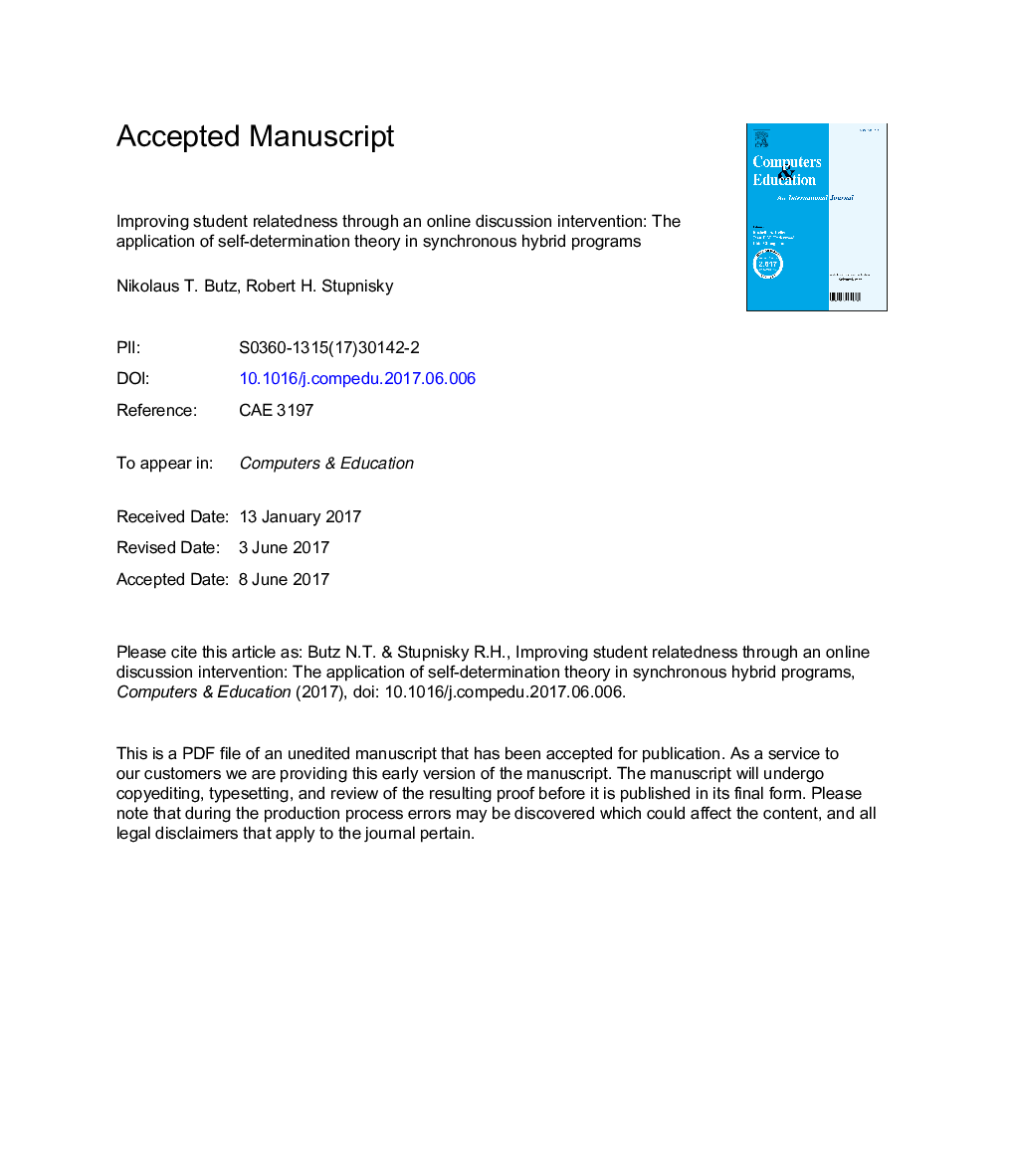| Article ID | Journal | Published Year | Pages | File Type |
|---|---|---|---|---|
| 4936814 | Computers & Education | 2017 | 68 Pages |
Abstract
Students' feelings of relatedness (i.e., feeling connected to others) are crucial for success in any learning environment; however, online courses often limit relatedness development, either by removing spontaneous interaction (e.g., asynchronous delivery) or by introducing seemingly incompatible online and on-campus factions (e.g., synchronous hybrid delivery). It was hypothesized that the strengths of one delivery mode could offset the weaknesses of the other. The purpose of this study was to implement and evaluate an online discussion board intervention designed to scaffold relatedness development. Deci and Ryan's (1985) self-determination theory was adopted as the theoretical framework. Participants were 83 graduate students enrolled in synchronous hybrid Masters of Business Administration (MBA), Masters of Public Administration (MPA), and Masters of Aviation (MS-Avit) programs offered at a large midwestern research university. This study used a convergent parallel mixed methods approach (QUAN + qual = triangulation). The methods involved a pretest-posttest experimental design in which students were randomly assigned to either the experimental group, wherein they participated in the intervention, or the control group, wherein they attended classes without any auxiliary interactions. The results indicated that students who participated in the intervention improved their self-efficacy for developing relatedness with individuals who attended online. The qualitative analysis generated three key themes: relatedness beliefs, program delivery, and student-interface interaction. This study holds practical implications for online learning in that it explicated how a threaded discussion can be used to scaffold relatedness development. The theoretical implications of this study involved the substantiation of three key elements of SDT: the basic needs, the types of motivation, and the importance of contextual support.
Keywords
Related Topics
Social Sciences and Humanities
Social Sciences
Education
Authors
Nikolaus T. Butz, Robert H. Stupnisky,
